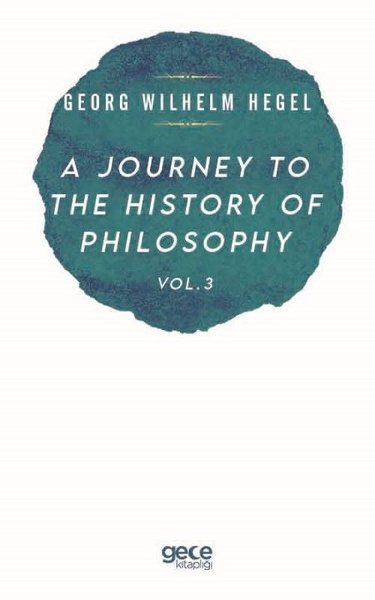A Journey to the History of Philosophy Vol - 3

“...In this second division we have first to consider more particularly the Sophists, secondly Socrates, and thirdly the Socratics, while we distinguish from these Plato, and take him along with Aristotle in the third division. The νοῦς, which is at first only grasped in a very subjective manner as end, that is to say as that which is end to men, i.e. the Good, in Plato and Aristo-tle became understood in what is on the whole an objec-tive way, as genus or Idea.
Because thought has now become set forth as principle, and this at first presents a subjective appearance as being the subjective activity of thought, there now sets in (since the absolute is posited as subject) an age of subjective reflection; i.e. there be-gins in this period—which coincides with the disintegra-tion of Greece in the Peloponnesian war—the principle of modern times...”
(Tanıtım Bülteninden)
“...In this second division we have first to consider more particularly the Sophists, secondly Socrates, and thirdly the Socratics, while we distinguish from these Plato, and take him along with Aristotle in the third division. The νοῦς, which is at first only grasped in a very subjective manner as end, that is to say as that which is end to men, i.e. the Good, in Plato and Aristo-tle became understood in what is on the whole an objec-tive way, as genus or Idea.
Because thought has now become set forth as principle, and this at first presents a subjective appearance as being the subjective activity of thought, there now sets in (since the absolute is posited as subject) an age of subjective reflection; i.e. there be-gins in this period—which coincides with the disintegra-tion of Greece in the Peloponnesian war—the principle of modern times...”
(Tanıtım Bülteninden)
















